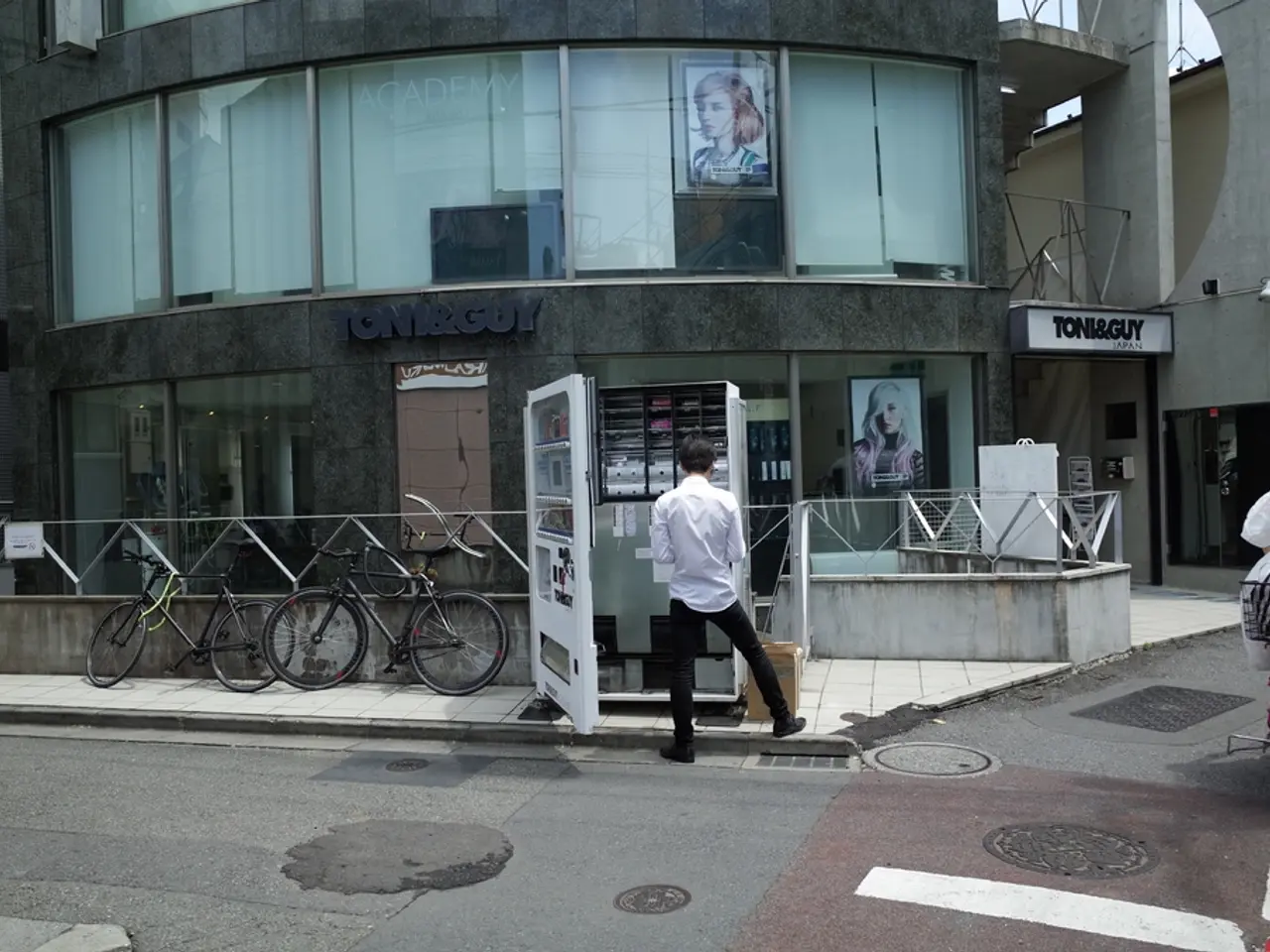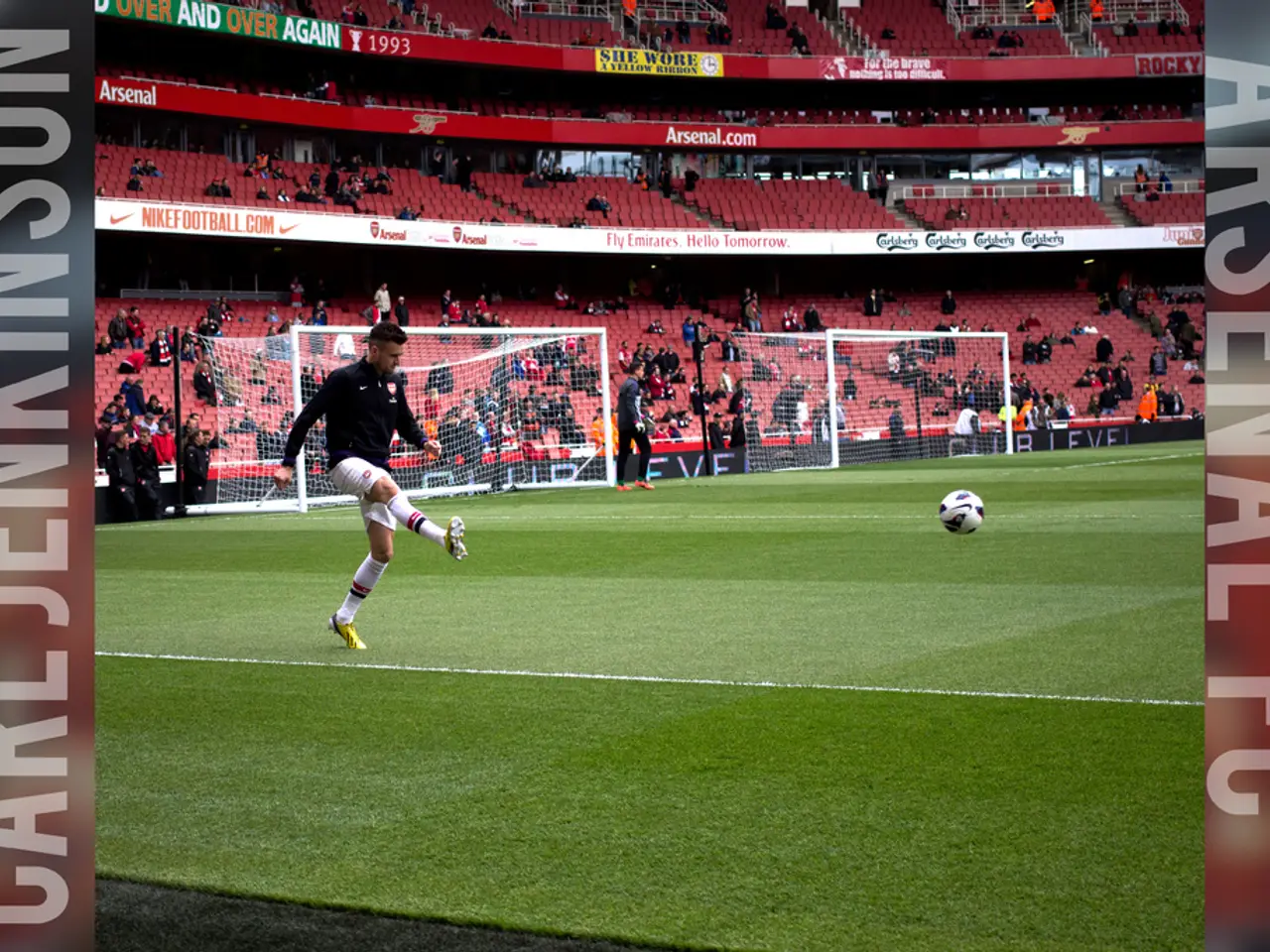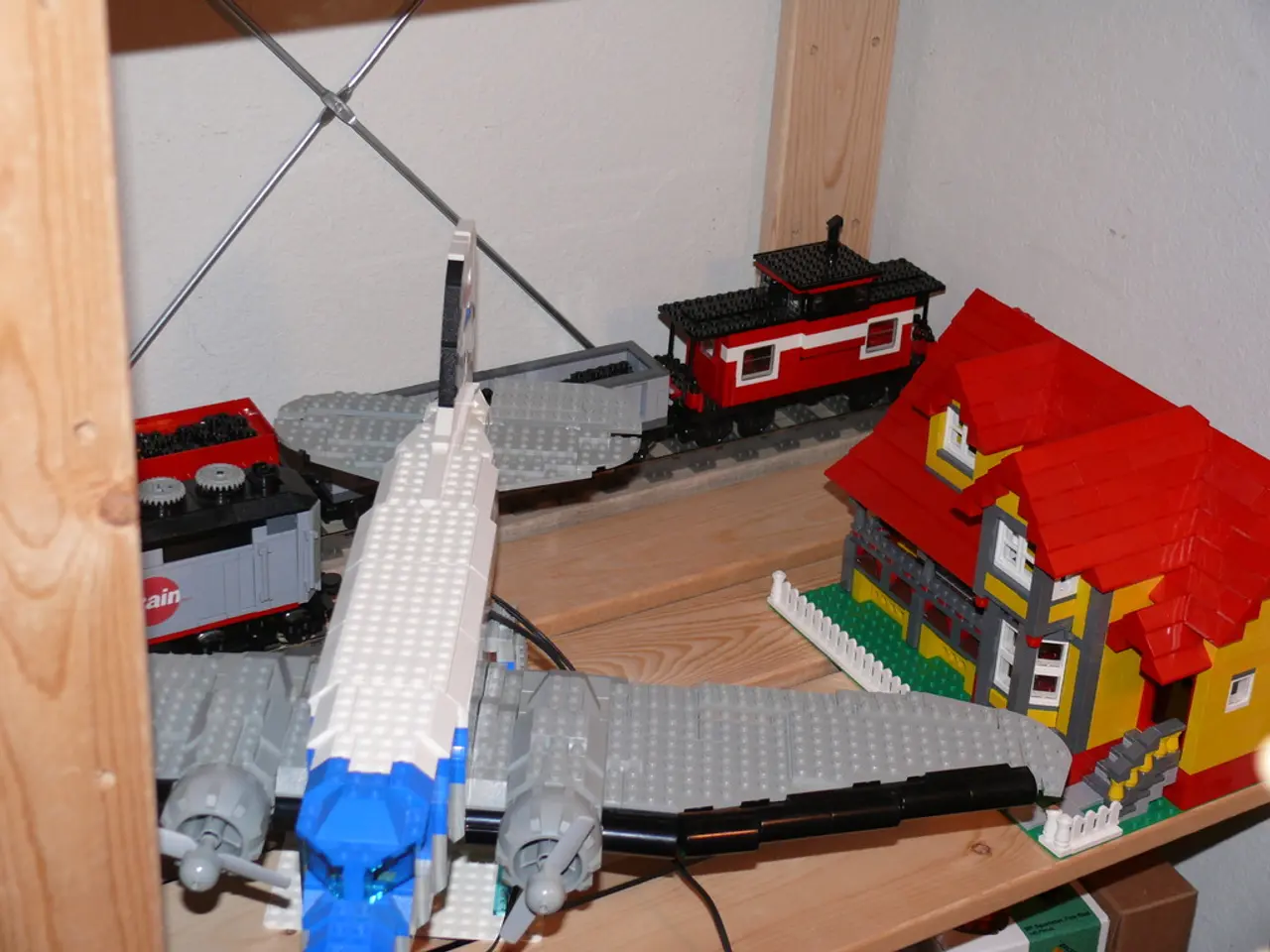Conflict between Cyclists and Truck Drivers
**Conflict Persists Between Commercial-Industrial Use and Cycling Traffic in Düsseldorf's Reisholzer Hafen**
In Düsseldorf's Reisholzer Hafen, a longstanding conflict between commercial-industrial activities and cycling traffic persists. The area, home to numerous companies, logistics operations, and shipping activities, also accommodates cycling routes that form part of the larger regional network along the Rhine and industrial canals.
The overlapping spaces and differing infrastructure needs have led to safety concerns and challenges for both cyclists and industrial traffic. Cyclists face limited dedicated paths, inadequate separation from industrial vehicle lanes, and potential hazards from loading/unloading zones.
Various compromises have been tested to address this issue, including time-based access restrictions, signage and markings, partial implementation of separated cycle paths, and coordination between the city's transport planners and industrial stakeholders to schedule deliveries and reduce conflicting traffic during peak cycling times.
As the focus shifts towards the future, infrastructure upgrades are planned or under discussion. These plans aim to create fully segregated cycle paths around and through the harbor area, extend the Düsseldorf cycling network linking Reisholzer Hafen more safely and directly to the city and surrounding towns, and possibly reroute heavy commercial traffic to reduce overlap with cycling routes.
The opposition, represented by a citizens' initiative called Hafenalarm, has criticized the city's approach, deeming it prioritization of industry and car traffic over the protected bike path. Martin Volkenbrath, SPD traffic expert, has criticized local companies for demanding free public parking space for commercial interests and proposed an autobahn rest area with sanitary facilities as an alternative for truck parking.
Despite the ongoing protests, Volkenbrath concludes that the construction of the bike path must continue, and the protests should not be dismissed as 'anti-industry.' The demand for such commercial-industrial locations remains high, and the city administration will continue to work on a solution for the traffic issue after the Corona pandemic.
The location in question is one of the traditional production and employment centers in southern Düsseldorf. The coalition for Düsseldorf's Mobility Turnaround has staked out clear positions, favoring civil society's demand for concessions from the economy for the continuation of the protected bike path. The autobahn rest area, located on the A46 about ten driving minutes away from Holthausen, serves as an alternative for truck parking, addressing some of the concerns raised by Volkenbrath.
As discussions and plans for infrastructure upgrades continue, it is crucial to find a balance between industrial growth and sustainable mobility, ensuring safety and efficiency for both industrial logistics and cycling commuters.
Sports enthusiasts advocating for cycling infrastructure might propose the development of designated bike paths near Düsseldorf's Reisholzer Hafen, enhancing the safety and efficiency for cycling commuters while fostering opportunities for leisure sports. The newly constructed bike paths could connect the harbor area to other cycling routes along the Rhine and industrial canals, effectively expanding the city's sports facilities and encouraging an increase in recreational cycling.







